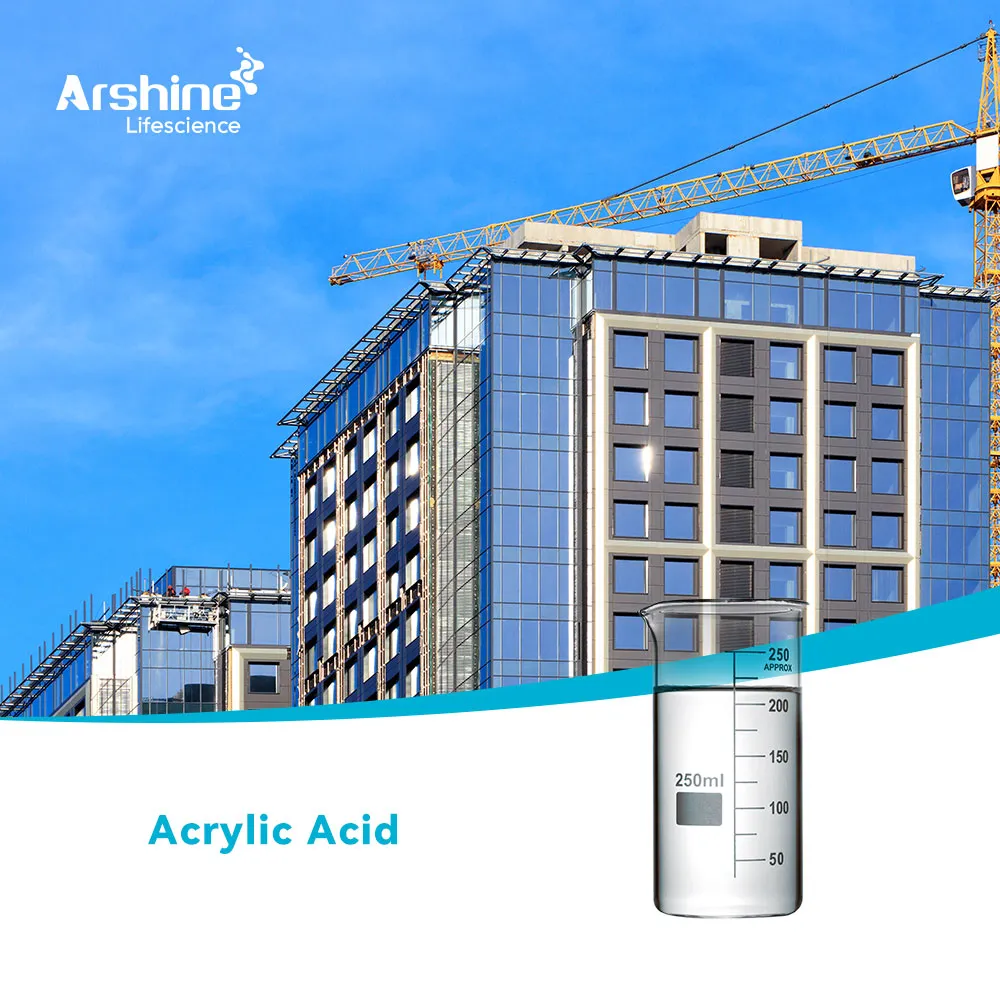

Acrylic acid is an organic compound and the simplest unsaturated fatty acid, with the chemical formula C3H4O2. At room temperature and pressure, it appears as a colorless liquid with a pungent odor, readily soluble in water (miscible), ethanol, ether, and other solvents. Due to the presence of unsaturated bonds in its structure, it exhibits high chemical reactivity:
Polymerizes easily in air
Undergoes reduction reactions with hydrogen
Forms esters through esterification with alcohols
Reacts with hydrogen halides via addition reactions
1.What is Acrylic acid(AA)?
Acrylic acid is an organic compound and the simplest unsaturated fatty acid, with the chemical formula C3H4O2. At room temperature and pressure, it appears as a colorless liquid with a pungent odor, readily soluble in water (miscible), ethanol, ether, and other solvents. Due to the presence of unsaturated bonds in its structure, it exhibits high chemical reactivity:
Polymerizes easily in air
Undergoes reduction reactions with hydrogen
Forms esters through esterification with alcohols
Reacts with hydrogen halides via addition reactions
Primary Applications:
Production of acrylate esters
Synthesis of superabsorbent polymers (SAP)
Widely used in:
✔ Coatings
✔ Textiles
✔ Hygiene products
✔ Water-retaining agents
2.How it Works?
The working principle of acrylic acid is primarily reflected in its chemical properties and performance across various applications.
Acrylic acid (chemical formula C3H4O2) is an organic compound that exists as a colorless liquid with a pungent odor under standard temperature and pressure. It demonstrates high solubility in water, ethanol, ether, and other solvents. Due to the presence of unsaturated bonds in its molecular structure, it exhibits significant chemical reactivity, including:
Reduction reactions with hydrogen
Esterification with alcohols
Addition reactions with hydrogen halides
3.Benefits and Uses
Acrylic acid is primarily used to produce:
Super Absorbent Polymers (SAP) – Represented by polyacrylic acid resins, capable of absorbing hundreds to thousands of times their weight in water. SAP is widely applied in hygiene products such as sanitary napkins and diapers, making it one of the fastest-growing segments in acrylic acid consumption.
Acrylate Esters – Valued for their excellent heat and water resistance, extensively used in coatings, adhesives, and related industries.
Water Treatment & Detergents – Employed in wastewater treatment and cleaning agents.
Q:Does the company accept sample orders?
A:Yes, our company accepts sample orders.
Q:What is the minimum order quantity for the company?
A:We do not have a minimum order quantity requirement, we arrange according to the customer's needs.
Q:How to ensure the quality of goods?
A:We have a strict QC/QA management system and strict release procedures, and we will provide all procedures to customers before shipment according to their requirements.
Q:Can we see the product quality before the order is shipped?
A:Of course, we always provide a relative Batach (s) 'COA before shipping.
Q:How will you deliver the goods?
A:We will communicate with customers, adopt their suggestions, arrange the most suitable delivery method, and ensure mutual satisfaction.
Add: Block 14, No.100, Luyun Road, Changsha 410205, Hunan, China.
Tel: +86-731-82294958
Email: info@arshinechem.com
WhatsApp: 8618874001228